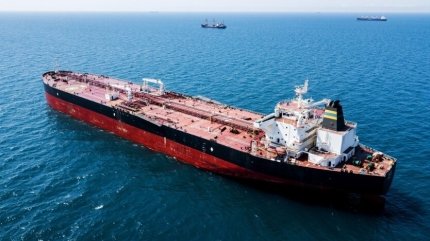According to the results of research by representatives of the environmental protection organization Greenpeace, tankers of the shadow fleet of the Russian Federation with Russian oil continue to enter the ports of EU countries.
Points of attention
- The shadow fleet of the Russian Federation continues to deliver Russian oil to EU ports, disregarding imposed sanctions, as reported by Greenpeace.
- The average age of tankers transporting crude oil has significantly increased, posing higher risks of environmental disasters in case of accidents.
- Tankers suspected of being part of the Russian shadow fleet are facilitating the circumvention of Western sanctions and endangering the environment and tourist destinations in the Baltic Sea region.
- The latest shipments of Russian oil to EU ports show an alarming trend, with tankers departing fully loaded from Russian ports and potentially shipping their cargo to EU countries.
- Greenpeace's research highlights the increased flight of crude oil tankers along the German Baltic Sea coast, raising concerns about potential oil spills that could harm various coastal areas.
What is known about the supply of Russian oil to the EU by the shadow fleet
Greenpeace notes that the ships, probably with Russian crude oil on board, departed from Russian ports in the Baltic Sea and, according to GPS data, they were heading to the ports of EU countries, which is a violation of the imposed sanctions.
Russian oil supplies to the EU have been banned since March 2023.

In particular, Russian oil was supplied mainly by ships of Greek shipping companies, some of which are part of the Russian shadow fleet.
These tankers are suspected of helping Russia circumvent Western sanctions.
What is known about the latest shipments of Russian oil to EU ports
According to satellite data, at least 15 tankers have been heading directly to European ports from Russia's Primorsk on the Baltic Sea, Ust-Luga and the Novorossiysk oil port on the Black Sea since July 2024.
The sediment of the vessels indicates that they left Russian oil ports fully loaded.
After arriving at the ports of destination, the draft of the tankers decreased by several meters, which indicates partial or full shipment.
Tankers with a length of about 250 meters can transport more than 150 million liters of crude oil each.
Greenpeace researchers highlight that crude oil tanker flights from Russian Baltic Sea ports along the German Baltic Sea coast have increased by 70% since January 2021.
At the same time, the total volume of transportation along this route, on the contrary, has decreased since the beginning of the war.
At the same time, the average age of tankers used to transport crude oil increased from 8.9 years in 2021 to 16.6 years in 2024.
In the event of an accident, the islands of Fehmarn and the Baltic resorts of Warnemünde and Damp will be at risk of an oil spill.



